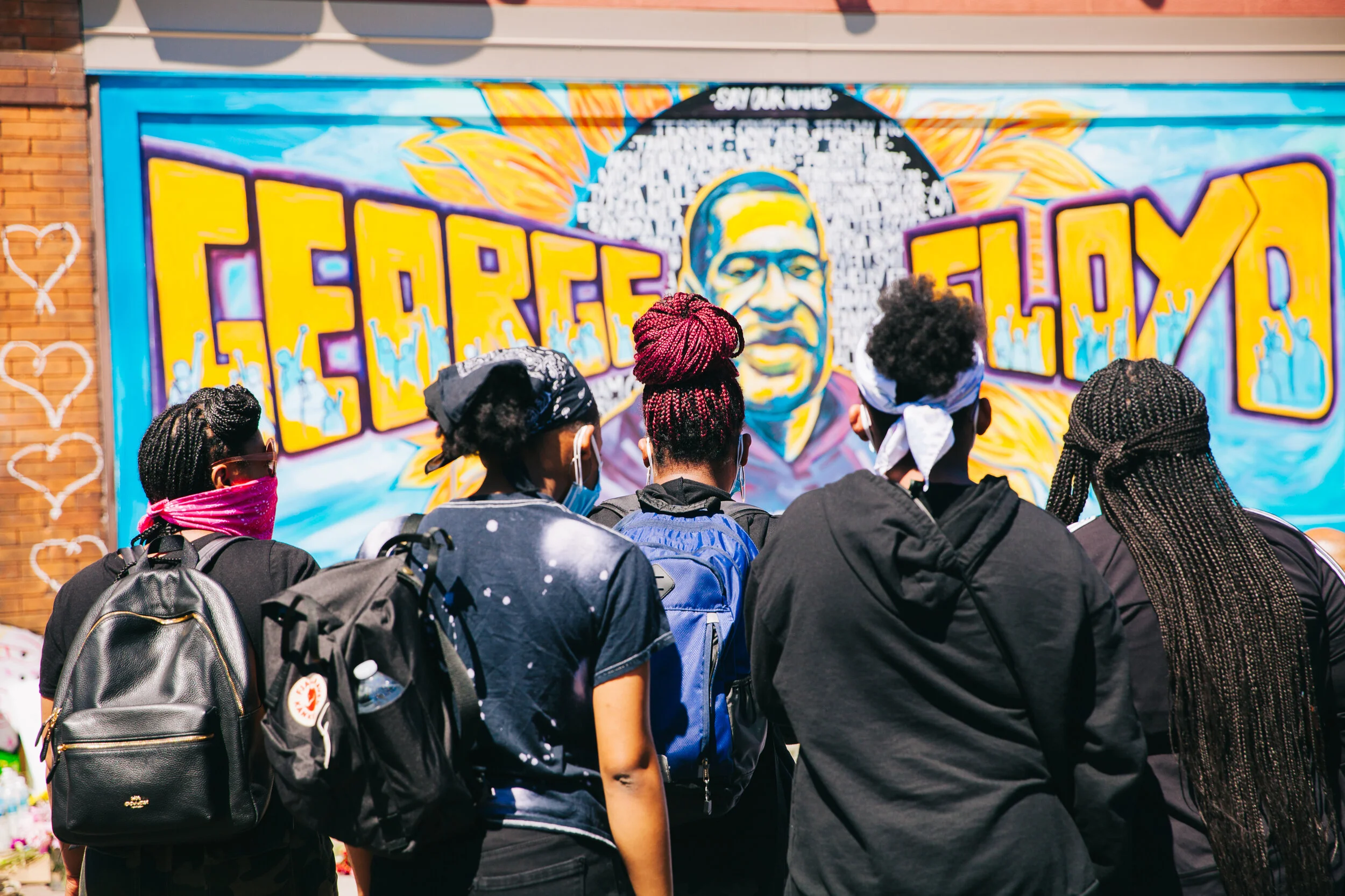Defending the Dream: Who’s Giving Grants for DACA Right Now?
/photo: Rena Schild/shutterstock
The Trump administration's decision to end DACA has created a lot of anger and pushback, including from some prominent corporate leaders. But what are foundations doing to protect undocumented young people from deportation and save DACA, the fate of which is now in the hands of Congress?
DACA, the Deferred Action for Childhood Arrivals, protects immigrants who came into the U.S. as minors and often know no other place to call home. The well-being of these young people has long concerned a range of funders. For example, a few years ago, we reported on the creation of TheDream.US, a fund that provides scholarships for immigrant youth going to college. Individual donors behind the effort, who put in at least $32 million, include Donald Graham, Henry Muñoz, Carlos Gutierrez, Bill Ackman and the Pershing Square Foundation, Mark Zuckerberg and Priscilla Chan, Pierre and Pam Omidyar, and Gilbert and Jacki Cisneros.
Institutional grantmakers have also supported the Dreamers and defended the DACA program in various ways, especially in California, where the largest number of DACA recipients live. Now, in the wake of the Trump administration's announcement on DACA, many funders are scrambling.
The affinity group Grantmakers Concerned with Immigrants and Refugees is playing an important coordinating role here, as it did in organizing philanthropy's response to Trump's travel ban. GCIR has made funding recommendations to guide funders toward the best ways to help on DACA right now. GCIR President Daranee Petsod told us that these recommendations reflect the diversity of the DACA beneficiary population and the challenges that they will face due to DACA's termination.
Petsod also told us that since DACA's launch in 2012, GCIR has engaged more than 100 foundations nationwide. "These funders, over the past five years, have invested and leveraged over $42 million to provide community outreach and education, legal screening, and application assistance to help eligible immigrants apply for DACA as well as more permanent immigration status," Petsod said.
National matching dollars for GCIR's Delivering on the Dream initiative were provided by the Open Society Foundations, the Ford Foundation, Unbound Philanthropy and the Bill and Melinda Gates Foundation. Petsod also mentioned the Z. Smith Reynolds Foundation, which is one of GCIR's partners on this initiative and a funder that we've been following closely here at IP. This North Carolina foundation provided $100,000 to help DACA recipients in its home state, underscoring the local approach that many DACA grantmakers are taking.
One hopeful point Petsod shared is that "14 percent of immigrants screened at DACA application clinics were actually eligible for immigration relief leading to a green card, i.e., permanent residency." Given that, she stressed that "screening undocumented immigrants (DACA beneficiaries and others) for more permanent forms of immigration relief is critical." Backing screening work, which is expensive and time consuming, is one way funders can make a difference.
Most immediately, there's an October 5 deadline looming, and much of the recent emergency funding is helping DACA recipients apply to extend their work permits and protect them from deportation for another two years. This is a group of about 55,000 people, but there are an estimated 750,000 additional recipients who will lose their status over time. Other funding is going toward supporting those needs, as well as organizing, litigation and advocacy for long-term policy solutions.
Geri Mannion, who oversees the democracy program at the Carnegie Corporation and is a leading funder of immigration work, told us, "Given the timing and time constraints of the DACA decision, it is hard for large foundations to move rapid response monies." But she noted that Carnegie "directly supports many litigation and legal services organizations with general support so that they can be nimble in responding in times like these." Carnegie and other funders have also backed the Four Freedoms Fund at NEO Philanthropy, a funder collaborative which is also able to move rapidly. At a meeting last week, the donors involved in the fund discussed a number of grants that could be moved quickly to the field, and money is now flowing.
California funders have been especially quick to mobilize on DACA in recent weeks. Right after Trump's decision, a who's who of key foundations in the state issued a statement saying: "As philanthropic institutions committed to building a prosperous, vibrant and inclusive California, we denounce the termination of DACA as antithetical to fundamental American values, and detrimental to the well-being of all communities." Many of these foundations have given significant funds over recent years to aid DACA recipients.
It is estimated that terminating DACA would impact approximately 223,000 Californians, which is over a quarter of the immigrants that would be affected nationwide. These are individuals who have been woven into the fabric of daily life in California and are employed in many businesses in the state.
California funders are supporting a range of rapid-response efforts to help DACA recipients. The Sobrato Family Foundation, based in Silicon Valley, has recently joined the fight and dedicated grantmaking dollars to DACA. It announced the creation of a new, one-time fund of $150,000 for current Sobrato grantees. The purpose of the fund is to reimburse existing grantees for DACA application fees. The funder also granted $25,000 to each of five local organizations addressing the legal needs of DACA participants. Law Foundation of Silicon Valley, Legal Aid Society of San Mateo, Community Legal Services of East Palo Alto, Services, Immigrant Rights, and Education Network (SIREN) of San Jose, and Catholic Charities of San Jose received these Sobrato grants to take action for the families they serve with fewer administrative and financial burdens.
To arrive at this grantmaking decision, the foundation reached out to its nonprofit partners to learn about what an end to DACA would mean for people in the Silicon Valley. "Our staff and board members do not want local nonprofit partners and people you serve to feel pressure to compete for national funds,” the official Sobrato statement says. “We are upholding the bond of community by making sure you have local resources for this critical work.”
In Rhode Island, philanthropy, the private sector, and the state government joined forces to provide funds to cover renewal fees for DACA beneficiaries eligible to renew before October 5th. And Unbound Philanthropy is supporting funding for DACA renewals taking place in key states with significant populations of DACA recipients but that have limited resources, like Arizona, Connecticut, Florida, New Mexico, New York (Long Island) and Texas.
There's a lot more we could flag here that funders are doing on DACA, but we'll close this recap with a reminder from GCIR's Daranee Petsod about the bigger picture and what's at stake.
It’s important for philanthropy to remember that DACA’s termination is only one in a series of executive actions seeking to reduce all forms of immigration, affecting far more than 800,000 DACA recipients. These actions include banning immigrants and refugees from certain Muslim countries; increasing immigration enforcement, detention, and deportation; weakening protections for asylum seekers, and drastically cutting refugee admissions. All of these actions have had and will continue to have a devastating and far-reaching impact, not only on DACA recipients and their families, but on the 43 million immigrants and refugees who already call our country home, as well as those who seek refuge and opportunity in the future. We encourage funders to build on their DACA response and address broader challenges facing immigrants and refugees given the hostile policy context.
You can learn more about GCIR and its upcoming national conference on immigrant and refugee issues here.
Related:
- Into Battle: The Chan Zuckerberg Initiative Steps Up Its Advocacy Giving
- City of LA Turning to Philanthropy to Help Undocumented Immigrants Stay
- Why Does This Wall Street Billionaire Care About Helping Immigrant DREAMers?
- The Big Money Behind a New College Fund for Immigrant "DREAMers"
- Why a Big Give for “DREAMers” Should Make You More Hopeful About Elite Philanthropy







































